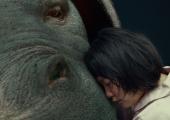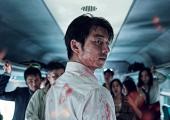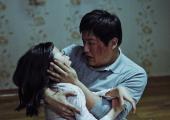Burning review - an explosive psychological thriller



Fear not. The Arts Desk has not suddenly sprouted a Sports Desk. Heaven forfend. Korea in late February had more to offer than luge, bobsleigh, skeleton and all the other bemedalled and potentially life-threatening variants of hurling bodies down icy slopes. The host region of every Olympic Games throws open a window to the world on its culture, and PyeongChang 2018 was no different.

Is meat murder? Will people eat anything if it’s cheap? Is the taste of bacon really what stops us half the western world turning vegetarian? Okja is a commercial stretch, a partly subtitled children’s fable from South Korea which unstintingly confronts all of these deep moral questions. But it does so in the most – if you will – palatable manner.

Park Chan-wook is a Korean decadent and moralist who’d have plenty to say to Aubrey Beardsley.

“What’s it like to be a child prodigy?” is a question asked by violinist Min Kym several times in the course of this fascinating, agonising memoir. There’s no simple answer, but this description rings true: “There’s that peculiar sensation of feeling completely normal within yourself, but acutely aware that you are different.”

With its familiar scenario of massed zombies on the offensive against the living, South Korean blockbuster Train to Busan stands or falls on the fresh twists in brings to the table. For director Yeon Sang-ho’s first feature with live actors – previous films The Fake, King of Pigs and Seoul Station were animated – he sets the action on a high-speed train hurtling towards a zombie-free zone on which hordes of zombies are sniffing out the unafflicted.

In the extras on the DVD release of The Wailing, South Korean director Na Hong-Jin says, “Every genre of film has its own strengths and weaknesses. By combining many genres you could say that I was able to build and emphasise the strengths, while diminishing the weaknesses.” And indeed, over its monumental 156 minutes, The Wailing attempts to meld comedy, an overt homage to The Exorcist, zombie movie tropes and social commentary.

When a lead character is warned that “it’s easier to be scrutinised in a small town”, it’s instantly clear they are not going to take the advice, keep their head down and make sure they don’t attract attention. In South Korean director July Jung’s first full-length feature, police chief Young-nam inevitably makes her presence felt soon after her arrival from Seoul in the southern coastal region of Yeosu.

In one way, it makes sense to give your London comeback concert in the venue where you made your European debut 44 years ago. Yet the Royal Festival Hall is a mighty big place for a violin-and-piano recital. Kyung Wha Chung had no problem nearly filling it last night with an audience including whole Korean families, but might have wished she hadn’t in the ailment-ridden dead of winter; her look could have killed a coughing child ("go and get a glass of water" is what I think I heard her say, from my very distant seat).

We learn from the front titles of Pieta that it’s Kim Ki-duk’s 18th film, and it won the Korean director the Golden Lion award at last year’s Venice film festival, against strong competition. Viewers may be asking themselves a rather different question, however, namely how much do we actually look forward to a new movie from Kim? We’re a decade on from one of his masterpieces, Spring, Summer, Fall, Winter... and Spring, with its meditative visual beauty, but that one was very much the exception in the director’s oeuvre to date.